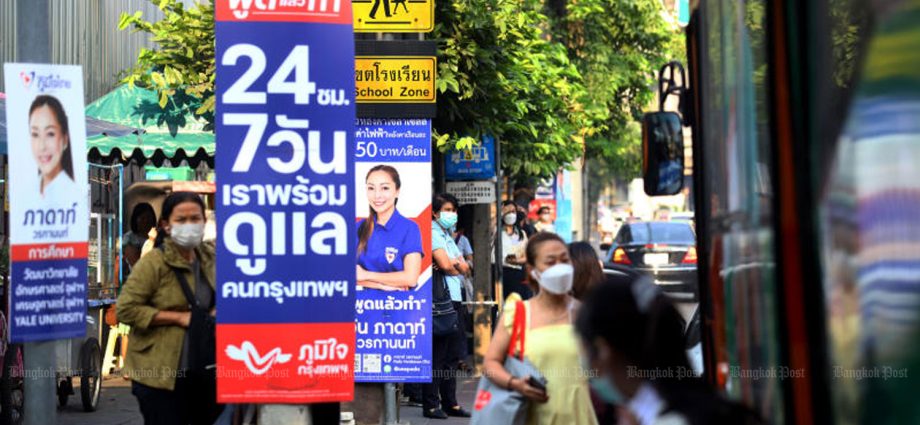
The Thailand Development Research Institute (TDRI) has warned major political parties that their main election campaign projects might not be necessary as a stimulus since the economy is not in recession.
A TDRI report published on Monday aims to study and analyse political parties’ budget management and provide some suggestions for them to adapt future strategies.
The analysis was based on the policies of six leading political parties — Pheu Thai, the Palang Pracharath Party (PPRP), the United Thai Nation (UTN) Party, the Democrat Party, the Bhumjaithai Party, and the Move Forward Party (MFP). The TDRI found that most of them in the study earmarked policies which might see a budget splurge if they are elected to office, at the detriment to the economy as it would push up public debt while taking its toll on economic stability.
The institute also noted that most of their financial policies risked piling up financial burdens.
As of last month, four parties had come up with policies costing a combined one trillion baht.
Bhumjaithai emerged as the top would-be spender, with at least 1.9 trillion baht slated to finance its campaign policy, followed by the MFP with 1.3 trillion baht and the PPPRP with one trillion baht, according to the TDRI.
The TDRI study also voices caution over budget management plans the six parties declared to the Election Commission (EC).
Bhumjaithai was found to have submitted an incomplete report on its proposed spending. The report did not contain details of several policies, such as the three-year debt moratorium. The policies appeared on the party’s website but were missing from the report.
The TDRI also believed Pheu Thai’s views on economic expansion were excessively optimistic. Some of the party’s policies, including its flagship 10,000-baht digital wallet programme, might encounter a problem securing the finances to implement them and complicate national budget management.
The MFP’s campaign, meanwhile, managed to give a detailed explanation of how the party would obtain funds to put its policies into practice. However, the TDRI questioned the risk of not being able to collect enough taxes to cover the party’s projects, some of which involve drastic reform of current practices, a move that might render the policies unpopular and prone to resistance.
Turning to the PPRP, its plan for budget management seems unclear as project spending details had fallen short, a problem that was also evident with Democrat policies.

